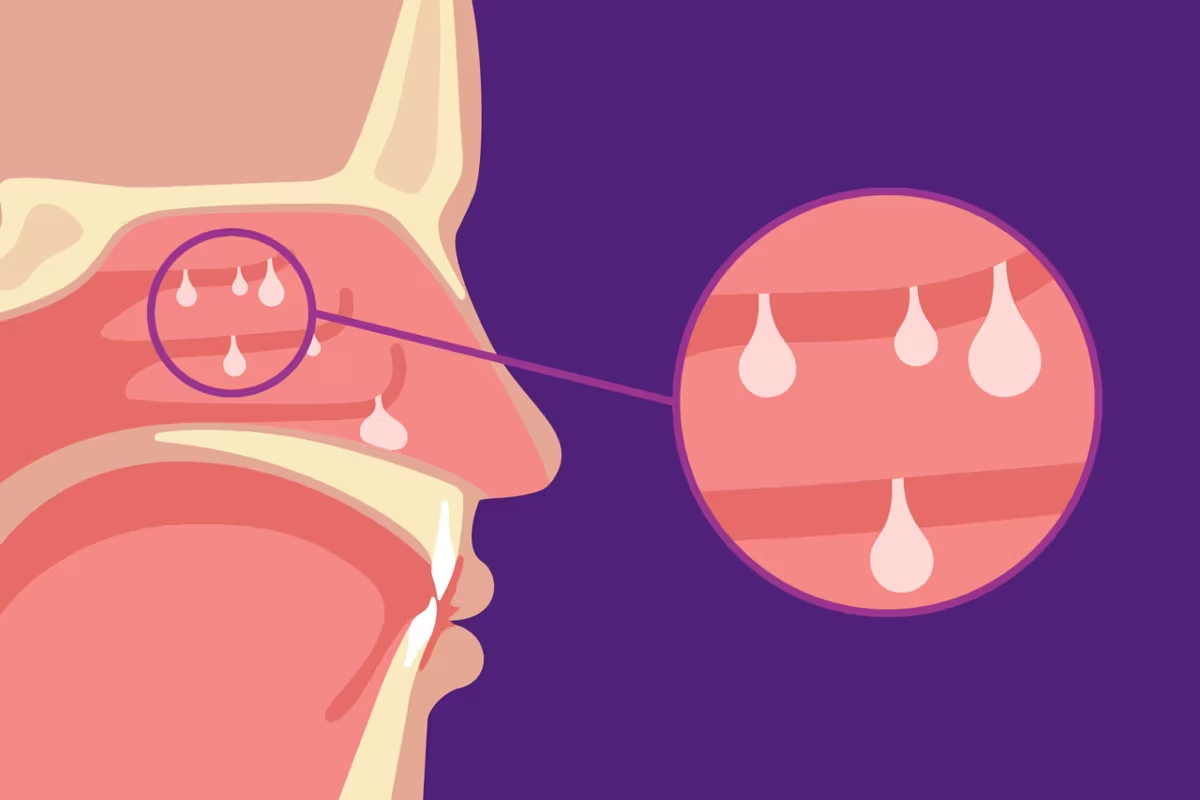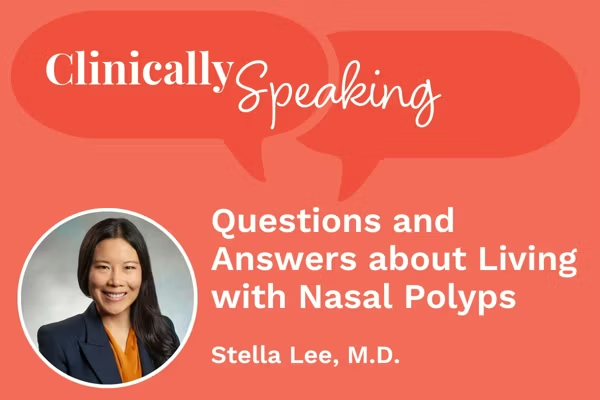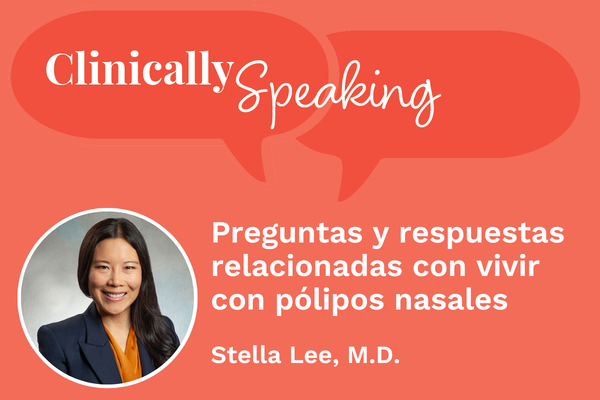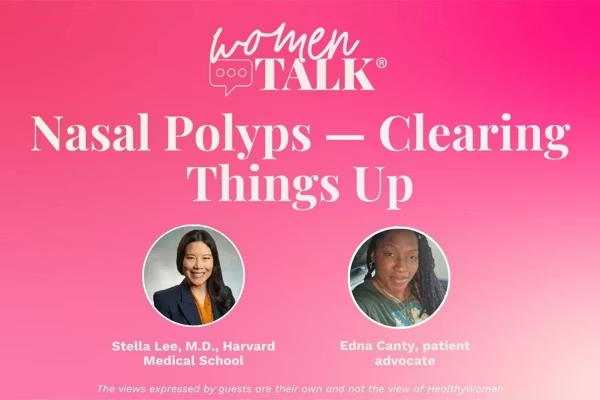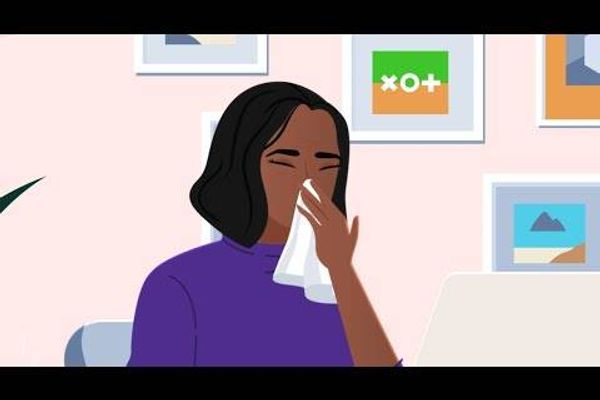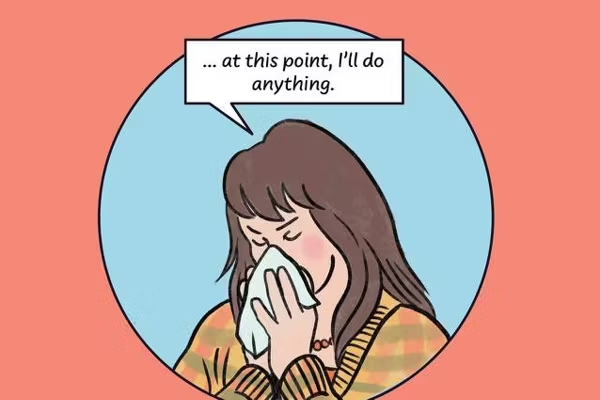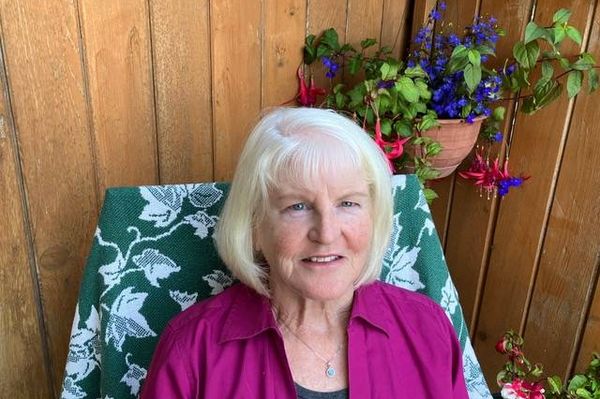Slide 2:
Nasal polyps are growths inside the nose or sinuses.
They’re not cancerous, but large polyps can:
- Make it hard to breathe
- Harm your quality of sleep
- Reduce your ability to smell and taste
- Cause infections
Certain allergies and conditions that cause inflammation can increase the risk of getting nasal polyps.
Slide 3:
In some people, the immune system senses and tries to attack infections that aren’t really there. This is called type 2 inflammation.
Type 2 inflammation may be the link between nasal polyps and many other conditions that go along with them, such as:
Slide 4:
Asthma and other respiratory diseases
Conditions that impact the airways and lungs making it harder to breathe
Slide 5:
Atopic dermatitis, also known as eczema
A chronic (long-term) condition that makes skin dry, itchy and inflamed
Slide 6:
Food allergies
An immune system overreaction to eating certain foods
Slide 7:
Eosinophilic esophagitis (EOE)
An immune system disease that makes it difficult to swallow
Slide 8:
Prurigo nodularis
A chronic skin condition that causes firm, severely itchy bumps
Slide 9:
Having nasal polyps along with one of more of these conditions can worsen symptoms and cause them to recur.
Because type 2 inflammation may be the cause of both nasal polyps and other condition(s), treating the inflammation might improve symptoms.
Slide 10:
If you have nasal polyps and one or more of these other conditions, talk to your healthcare provider. Understanding the underlying cause of your nasal polyps can help your HCP create the right treatment plan for you.
This educational resource was created with support from Sanofi and Regeneron.
- It Took Years to Get My Nasal Polyps Diagnosed, and Even Longer to Treat Them ›
- Navigating Health Insurance for Nasal Polyps ›
- Type 2 Inflammation and Nasal Polyps ›
- Nasal Polyps 101 ›
- Clinically Speaking: Questions and Answers About Nasal Polyps ›
- Type 2 Inflammation and Nasal Polyps - HealthyWomen ›

